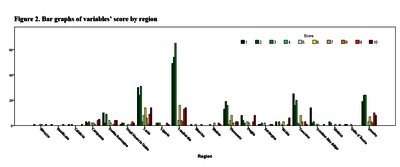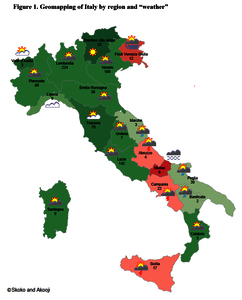Skoko, E., Ravaldi, C., Vannacci, A., Nespoli, A., Akooji, N., Balaam, M-C, Battisti, A., Cericco, M., Iannuzzi, L., Morano, S. and Downe, S., 2018. Findings from the Italian Babies Born Better Survey. Minerva Ginecologica, 70 (6), 663 - 675.
Full text available as:
Preview |
PDF
Findings from the Italian BBB survey.pdf - Accepted Version Available under License Creative Commons Attribution Non-commercial. 362kB |
![Minerva Ginecol-4296_Figure2_V2_2018-08-27.jpg [thumbnail of Minerva Ginecol-4296_Figure2_V2_2018-08-27.jpg]](https://eprints.bournemouth.ac.uk/33713/13.hassmallThumbnailVersion/Minerva%20Ginecol-4296_Figure2_V2_2018-08-27.jpg)  Preview |
Image (JPEG)
Minerva Ginecol-4296_Figure2_V2_2018-08-27.jpg - Accepted Version Available under License Creative Commons Attribution Non-commercial. 172kB |
![Minerva Ginecol-4296_Figure3_V1_2018-10-11.jpg [thumbnail of Minerva Ginecol-4296_Figure3_V1_2018-10-11.jpg]](https://eprints.bournemouth.ac.uk/33713/14.hassmallThumbnailVersion/Minerva%20Ginecol-4296_Figure3_V1_2018-10-11.jpg)  Preview |
Image (JPEG)
Minerva Ginecol-4296_Figure3_V1_2018-10-11.jpg - Accepted Version Available under License Creative Commons Attribution Non-commercial. 439kB |
|
Copyright to original material in this document is with the original owner(s). Access to this content through BURO is granted on condition that you use it only for research, scholarly or other non-commercial purposes. If you wish to use it for any other purposes, you must contact BU via BURO@bournemouth.ac.uk. Any third party copyright material in this document remains the property of its respective owner(s). BU grants no licence for further use of that third party material. |
DOI: 10.23736/S0026-4784.18.04296-X
Abstract
BACKGROUND: The most recent WHO recommendations "Intrapartum care for a positive childbirth experience" highlight the need to identify women-centered interventions and outcomes for intrapartum care, and to include service users' experiences and qualitative research into the assessment of maternity care. Babies Born Better (B3) is a trans-European survey designed to capture service user views and experiences of maternity care provision. Italian service users contributed to the survey. METHODS: The B3 Survey is an anonymous, mixed-method online survey, translated into 22 languages. We separated out the Italian responses and analyzed them using computer-assisted qualitative software (MAXQDA) and SPSS and STATA for quantitative data analysis. Simple descriptives were used for the numeric data, and content analysis for the qualitative responses. Geomapping was based on the coded qualitative data and postcodes (using Tableau Public). RESULTS: There were 1000 respondents from every region of Italy, using a range of places of birth (hospital, birth center, home) and experiencing care with both midwives and obstetricians. Most identified positive experiences of care, as well as some practices they would like to change. Both positive and critical comments included provision of care based on the type of providers, clinical procedures, the birth environment, and breastfeeding support. There were clear differences in the geomapped data across Italian regions. CONCLUSIONS: Mothers highly value respectful, skilled and loving care that gives them a strong sense of personal achievement and confidence, and birth environments that support this. There was distinct variation in the percentage of positive comments made across Italian regions.
| Item Type: | Article |
|---|---|
| ISSN: | 0026-4784 |
| Uncontrolled Keywords: | adult; breast feeding; delivery; obstetric; female; humans; infant; newborn; Italy; midwifery; parturition; patient satisfaction; pregnancy; pregnancy outcome; prenatal care; surveys and questionnaires; young adult |
| Group: | Faculty of Health & Social Sciences |
| ID Code: | 33713 |
| Deposited By: | Symplectic RT2 |
| Deposited On: | 12 Mar 2020 13:36 |
| Last Modified: | 14 Mar 2022 14:21 |
Downloads
Downloads per month over past year
| Repository Staff Only - |
 Tools
Tools Tools
Tools